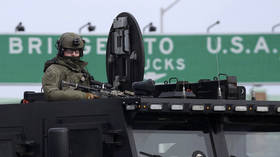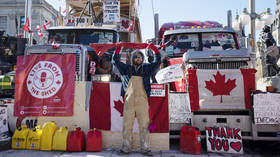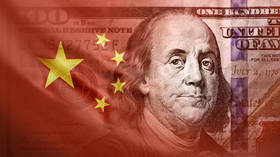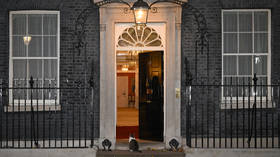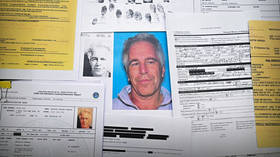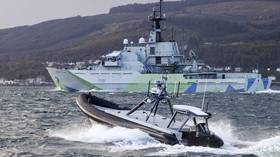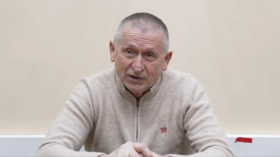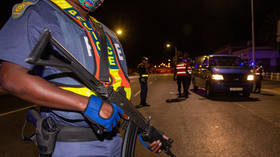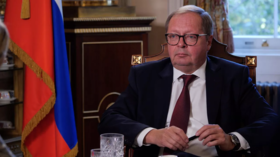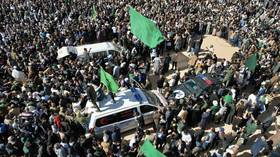Trudeau’s use of Emergencies Act threatens ‘civil liberties’ – rights group
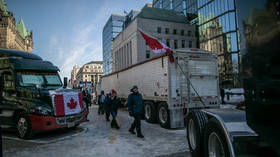
The Canadian Civil Liberties Association has responded to Prime Minister Justin Trudeau’s invocation of the Emergencies Act to combat the “Freedom Convoy,” saying on Tuesday they are concerned by how the government is dealing with anti-mandate protesters across the country.
According to the civil rights group, the “high and clear” standard for using the Emergencies Act has not been met. However, Trudeau announced this week that he was using the authority to expand the resources and scope of law enforcement to deal with blockades, which the protesting truckers and their supporters created at border points and in major cities.
The “Freedom Convoy” protesters have been demonstrating across the country against controversial Covid-19 mandates. The protests originally began as a demonstration by truckers against a mandate that would require people crossing the border into Canada to quarantine for a period of time. They have grown in size and scope, however, and Trudeau has described them as “not a peaceful protest.” The demonstrations are “disrupting the lives of too many Canadians,” he announced on Monday, referring to “illegal blockades” and “occupations” in major cities and at border crossings.
The invocation of the Emergencies Act is “about keeping Canadians safe, protecting people’s jobs, and restoring confidence” in the country’s institutions, he claimed.
However, the Canadian Civil Liberties Association has disagreed with the reasoning.
“This law creates a high and clear standard for good reason: the Act allows government to bypass ordinary democratic processes. This standard has not been met,” the group tweeted in a thread responding to Trudeau’s announcement.
Governments regularly deal with difficult situations, and do so using powers granted to them by democratically elected representatives. Emergency legislation should not be normalized. It threatens our democracy and our civil liberties. #cdnpoli
— Canadian Civil Liberties Association (@cancivlib) February 15, 2022
Powers under the Emergencies Act can only be used when a situation cannot be dealt with effectively by “any other law of Canada,” and the group believes blockades by truckers and protesters have not caused enough disruption to justify the government’s response.
“Emergency legislation should not be normalized. It threatens our democracy and our civil liberties,” they tweeted.
Canada’s Emergencies Act has never been invoked before. On top of expanding the authority of law enforcement, the legislation also widens the scope of how the government can deal with protesters. Certain locations will be designated “critical areas” where protesters must avoid, and it also gives the government’s financial intelligence agency FinTrac additional authority over things like crypto transactions and online fundraising.
The new powers will give police “more tools to restore order where public assemblies can constitute illegal and dangerous activities, such as blockades and occupations as seen in Ottawa, the Ambassador Bridge, and elsewhere,” Trudeau said.
